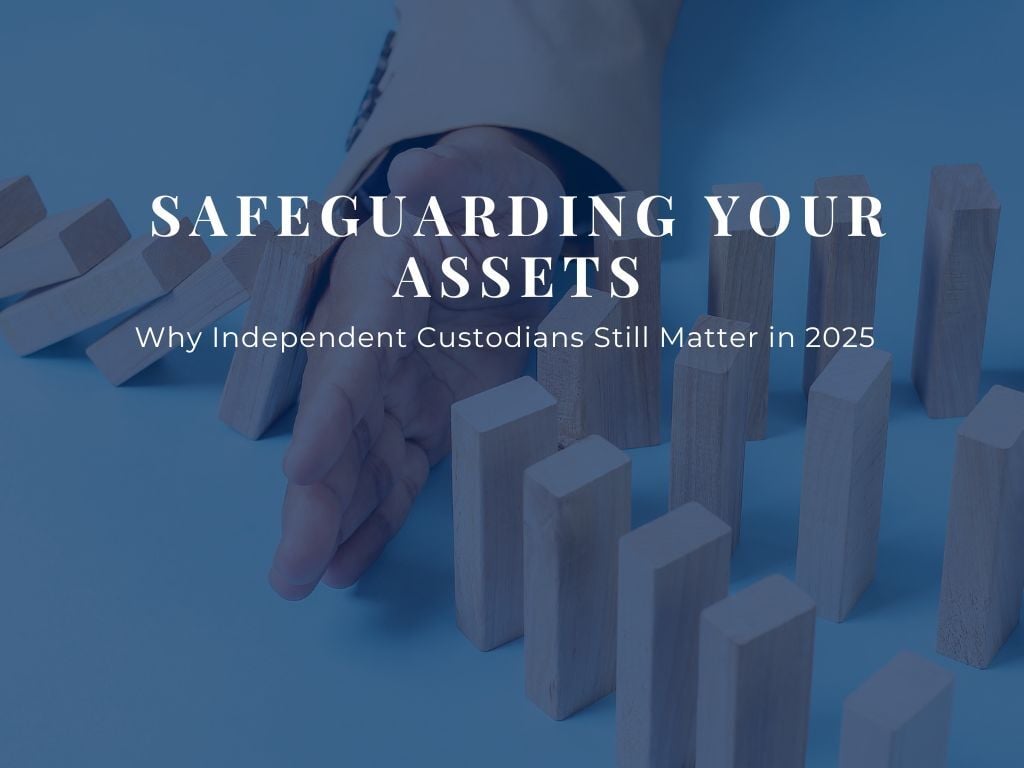Originally published in 2023. Updated October 2026 to reflect current custodial data and market context.
In times of market volatility and financial headlines about bank stability, investors are once again asking an important question: Is my money safe?
We’ve been writing about this topic for several years, and it continues to be relevant today. As fiduciary advisors, we want to revisit how your assets are protected—and why we partner with third-party custodians like Schwab and Fidelity.
As a fiduciary advisor, we have maintained an arms-length approach to the selection of a client’s custodian, preferring to remain impartial and allowing the client to decide. Since there is a wide variety of options: banks, brokerage firms, discount brokerage firms, etc., there is also great variance in the quality and cost of services.
We have historically suggested using Charles Schwab or Fidelity due to their size, low cost, service teams and independence. While clients still choose to use US Bank, Raymond James, PNC and others, with the preponderance of the assets we manage at Schwab and Fidelity, we will focus on these two custodians for this discussion. Schwab completed its acquisition and full integration of TD Ameritrade in 2023, consolidating custodial services under the Schwab platform.



.png)
